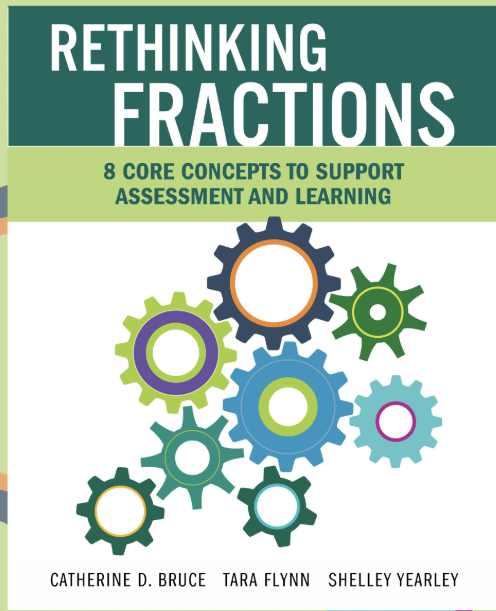
Rethinking Fractions – Darren Clark (December 3rd, 2024) I attended a workshop on Rethinking Fractions, which focused on building a deep understanding of unit fractions and the eight core concepts essential for unlocking fraction comprehension. The Rethinking Fractions textbook emphasizes strategies to assess students’ understanding and how to identify misconceptions through targeted, field-tested questions. This workshop has equipped me with tools to support students in developing a solid foundation in fractions while tailoring instruction to enhance their learning outcomes.
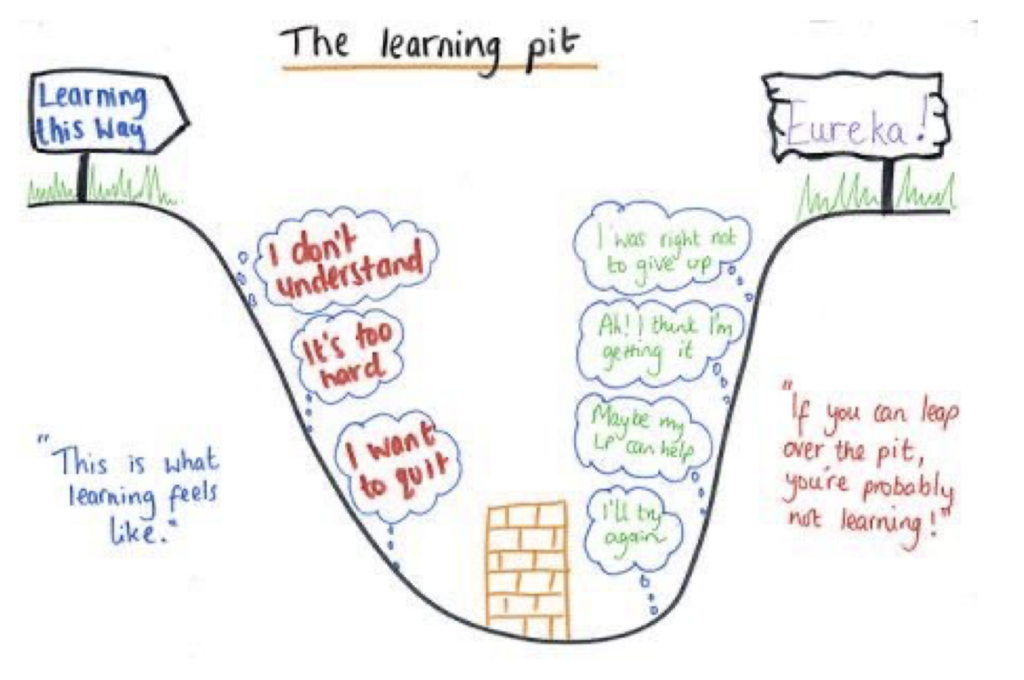
Assessment and Classroom Management – Denise Underwood (April 22nd 2024). I attended a workshop on Assessment and Classroom Management led by Denise Underwood, which explored key strategies for fostering a positive and productive learning environment. The workshop emphasized the importance of cultivating a growth mindset, reinforcing the belief that all students are capable of success with effort and perseverance. It highlighted the significance of classroom culture, encouraging educators to celebrate student achievements and create a space for visible learning feedback. A particularly impactful concept was the Learning Pit, which frames struggle as a natural and necessary part of the learning process. I found the Learning Pit especially valuable as a tool to help students reflect on their learning journey and identify their progress.
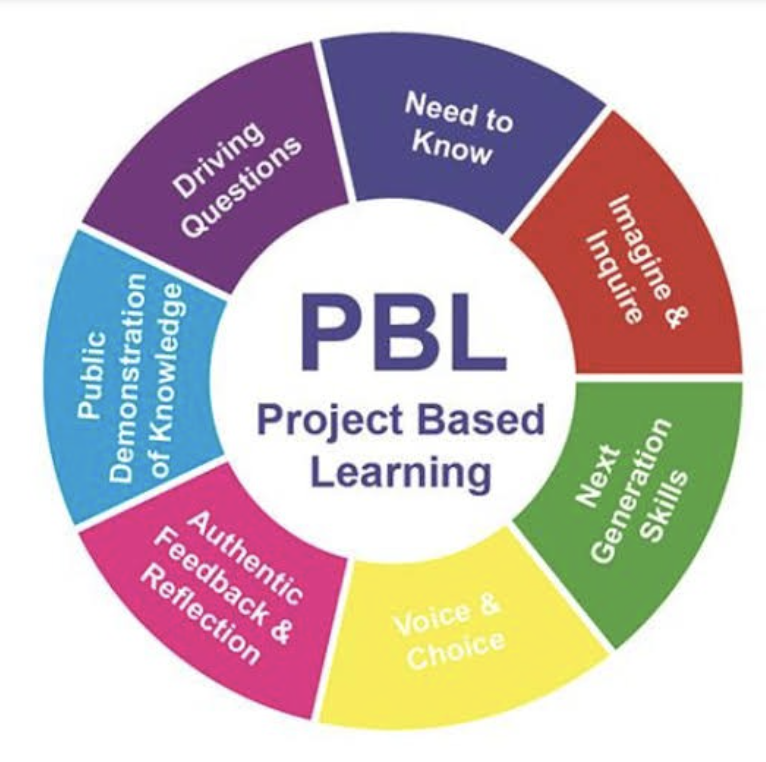
Project Based Learning – Amanda Russett (April 22nd 2024) I participated in a workshop on Project-Based Learning that emphasized the value of hands-on, collaborative activities to engage students in meaningful learning. One standout activity involved programming robot bugs to follow a path that told a story, integrating creativity, problem-solving, and technology skills. This experience reinforced the power of project-based learning to inspire curiosity, foster critical thinking, and encourage students to take ownership of their learning through real-world applications.
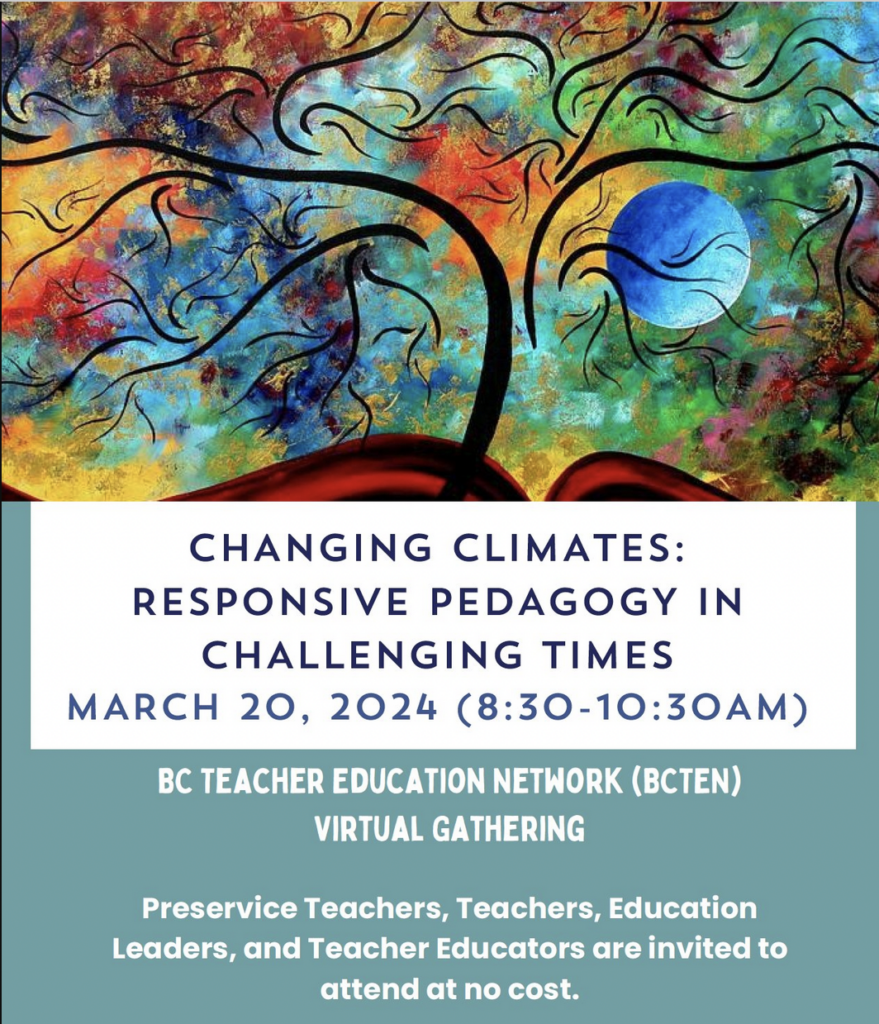
As a future teacher dedicated to instilling environmental sustainability and climate change awareness in my classroom, attending the BC Teacher Education Network (BCTEN) Virtual Gathering was profoundly impactful for me. The conference underscored the pivotal role of students as agents of change, emphasizing the importance of fostering their leadership skills and efficacy. Learning about the multidimensional approach to climate change education, including cognitive, socio-emotional, action-oriented, and justice-focused dimensions, provided invaluable insights into effective teaching strategies. I was particularly grateful for the “ingredients” for lesson planning and climate change educator criteria, which included the emphasis on decolonizing and indigenizing the curriculum, incorporating diverse perspectives, and fostering critical thinking and agency among students. As I reflect on the conference, I am more committed than ever to integrating these principles into my teaching practice, empowering students to become informed, engaged advocates for environmental stewardship and social justice.
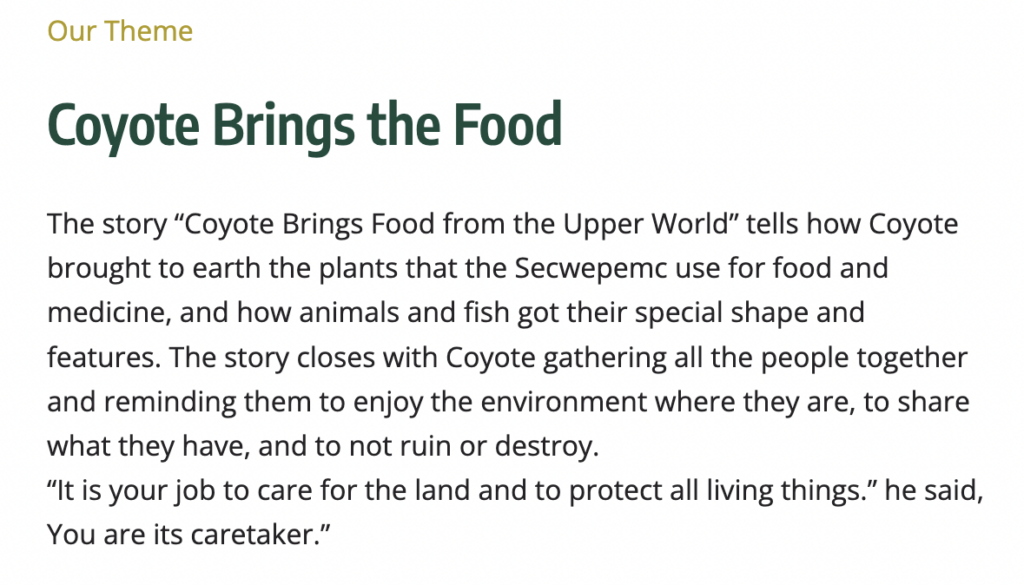
As a future teacher, the Coyote Brings the Food: Healing the land while healing from the land Conference at IDays 2024 was a profoundly enriching experience that deepened my understanding of the interconnectedness between culture, knowledge, and sustainability. The opening ceremony’s acknowledgment of the Tk’emlups te Secwepemc territory and the invocation of tradition through a welcome song set a powerful tone for the event, highlighting the importance of honoring Indigenous perspectives and wisdom. The discussions led by esteemed speakers from TRU Research, TRU World, the United Nations Food and Agriculture Organization, and the founders of Knowledge Makers provided valuable insights into the significance of IDays and the publication of Knowledge Makers. Through their presentations, I gained a deeper appreciation for the transformative potential of initiatives like Knowledge Makers in empowering communities to address pressing issues such as climate change and food sovereignty. The keynote speakers, Dr. Airini and Dr. Sereana Naepi, further illuminated the profound impact of Indigenous knowledge systems on contemporary society, inspiring me to integrate Indigenous perspectives and traditional wisdom into my future teaching practice. Overall, this conference reaffirmed my commitment to fostering cultural exploration, sustainability, and social justice in the classroom, and I am excited to apply the insights gained to create inclusive and transformative learning experiences for my students.
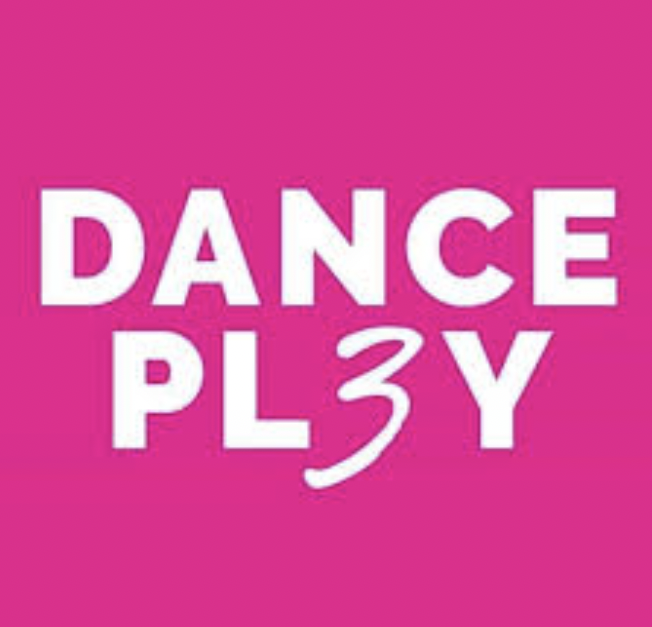
Participating in Dance Play with Roxanne was a truly meaningful experience that emphasized the importance of incorporating Indigenous perspectives and cultural practices into education in a fun and engaging way. In addition to promoting physical literacy, Dance Play also fosters cultural awareness and appreciation among students by incorporating dance and lesson ideas rooted in Indigenous communities across Canada. Collaboratively choreographed by Indigenous students, teachers, teacher candidates, and an Elder, each dance embodies the richness of Indigenous traditions and values, providing a platform for sharing and celebrating diverse Indigenous cultures. As a future teacher, engaging with Dance Play has deepened my understanding of the significance of cultural representation and inclusion in the classroom. It has inspired me to integrate Indigenous knowledge and perspectives into my future teaching practice, fostering a learning environment that honours and respects the cultural diversity of all students. I am committed to promoting cultural understanding, empowering Indigenous voices, and contributing to the reconciliation process through meaningfully incorporating Indigenous dances and teachings into my lessons.
